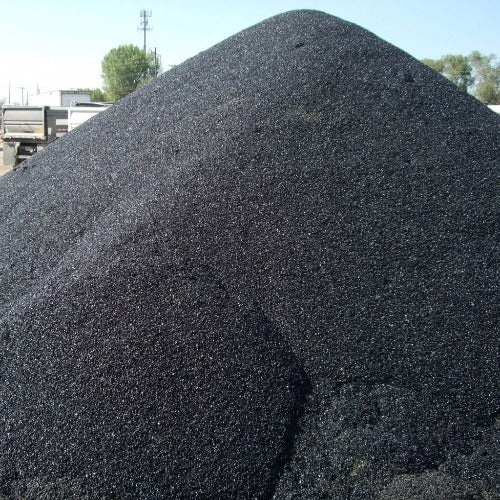Cold Mix Asphalt: Transforming the Means We Build Roads
As the framework industry continues to progress, the application of cold mix asphalt provides an appealing change in road construction approaches. The ingenious properties of cold mix asphalt are tough standard road-building practices, leading the means for improved performance and sturdiness.
Advantages of Cold Mix Asphalt
What benefits does chilly mix asphalt offer over standard warm mix asphalt in roadway construction jobs? One crucial advantage is its capacity to be made use of in all weather condition problems, unlike warm mix asphalt which requires specific temperature level problems for laying and blending.
Furthermore, cold mix asphalt is a lot more environmentally friendly as it requires less power for manufacturing and discharges lower degrees of greenhouse gases compared to warm mix asphalt. These benefits combined make chilly mix asphalt a functional and reliable selection for various roadway building and construction jobs.

Environmental Advantages
One of the key environmental advantages of cold mix asphalt is its lower carbon impact compared to warm mix asphalt. Additionally, chilly mix asphalt is usually made using recycled materials such as redeemed asphalt pavement (RAP) and recycled asphalt tiles (RAS), further minimizing the demand for brand-new raw products and diverting waste from landfills.
Furthermore, using cool mix asphalt can bring about reduced energy consumption throughout building because of its capacity to be applied using traditional tools without the demand for additional heating processes. This not only lowers fuel consumption but additionally lessens air pollution and improves air quality in the surrounding locations. By picking cool mix asphalt for road jobs, building firms can make a favorable effect on the environment while still making sure long lasting and premium roadway surface areas.
Convenience in Weather
In road building and construction tasks, the adaptability of cold mix asphalt in numerous climate condition enhances its practicality and performance. Unlike hot mix asphalt, which needs high temperatures throughout blending and installation, cool mix asphalt can be made use of in a broad range of weather. Asphalt Repair. This adaptability makes it a useful option for road building in regions with severe temperature levels or unforeseeable weather condition patterns
Cold mix asphalt remains workable even in cool climate, permitting building projects to proceed during winter season when hot mix asphalt may not be a practical choice. Its ability to establish and treat without the need for high temperature click here for more info levels guarantees that roadway repair and maintenance can be executed year-round, reducing disruptions to traffic flow and lowering general task timelines.
Furthermore, chilly mix asphalt's resilience to dampness makes it suitable for locations vulnerable to regular rain or high moisture. Its adaptability and sturdiness allow it to stand up to development and tightening triggered by temperature level fluctuations, adding to longer-lasting roadways that need fewer fixings gradually. Generally, the convenience of cool mix asphalt in various climate condition makes it a reliable choice for efficient and lasting roadway building projects.

Cost-Effectiveness and Sustainability
Thinking about the financial and ecological effects of road building and construction materials, just how does the cost-effectiveness and sustainability of cool mix asphalt contrast to traditional options? In terms of cost-effectiveness, cool mix asphalt usually needs reduced production temperatures, minimizing energy consumption and production prices compared to warm mix asphalt.
From a sustainability standpoint, cold mix asphalt offers a number of environmental advantages. Its reduced production temperatures lead to lowered greenhouse gas discharges and energy usage, aligning with efforts to alleviate environment change. The ability to recycle existing products right into cool mix asphalt adds to a circular economic climate see page strategy, reducing the need for virgin products and lowering overall ecological influence. On the whole, the cost-effectiveness and sustainability of cold mix asphalt make it a promising option to conventional road construction products.
Effect On Road Durability
Cold mix asphalt, with its unique features, has a noteworthy effect on road toughness. One essential facet is the ability of cool mix asphalt to endure temperature level changes without endangering its architectural integrity.
Additionally, the cold mix asphalt's improved resistance to wetness damages plays a vital role in preserving roadway resilience. Traditional warm mix asphalt is much more prone to moisture seepage, which can weaken the pavement structure in time. On the other hand, chilly mix asphalt's composition enables it to much better stand up to water infiltration, decreasing the probability of holes and various other forms of wear and tear.
Final Thought
Finally, chilly mix asphalt supplies a wide range of benefits for road construction, including ecological benefits, versatility in weather problems, cost-effectiveness, and boosted road resilience. Its ability to be made use of year-round and its lasting techniques make it a transformative option for developing roadways that are both environmentally friendly and resilient. With its innovative strategy and durable results, chilly mix asphalt is reinventing the method we build roadways for a much more lasting future.
What benefits does cold mix asphalt deal over traditional warm mix asphalt in roadway building tasks? Furthermore, cool mix asphalt is much more eco pleasant as it requires less power for manufacturing and releases reduced degrees of greenhouse gases contrasted to hot mix asphalt. Asphalt Repair. In addition, cold mix asphalt is typically made making use of recycled materials such as reclaimed asphalt pavement he has a good point (RAP) and recycled asphalt roof shingles (RAS), more reducing the need for new raw materials and diverting waste from garbage dumps
Unlike warm mix asphalt, which needs high temperatures during mixing and installation, cool mix asphalt can be used in a broad range of weather condition conditions. In terms of cost-effectiveness, cool mix asphalt generally requires lower production temperatures, reducing energy consumption and production expenses compared to warm mix asphalt.